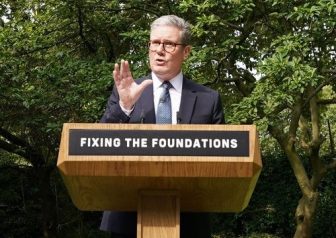
Taxes are likely to increase in the Labour government’s first budget, the chancellor Rachel Reeves, had already told the press last month, and now the prime minister, Sir Kier Starmer, has also hinted at tax hikes, after yesterday warning that the upcoming October budget would be ‘painful’.
The chancellor has ruled out raising national insurance, VAT or income tax but says there are ‘difficult decisions to come’ amid a £22bn public finance shortfall, with changes in inheritance tax, capital gains tax and pensions all very possible when the budget is revealed on 30 October.
In his first major speech from Number 10 since becoming prime minister, Starmer blamed the Conservatives’ legacy for what he called an economic and societal ‘black hole’, and warned the public to expect more unpopular decisions in the near future.
The prime minister said: “I will be honest with you, there is a budget coming in October and it’s going to be painful.”
He added: “Just as when I responded to the riots, I’ll have to turn to the country and make big asks of you to accept short-term pain for long-term good. The difficult trade-off for the genuine solution.”
Sir Keir said “those with the broadest shoulders should bear the heavier burden”.
Tom Clougherty, executive director at the free market think tank the Institute of Economic Affairs, commented: “The government is softening voters up for a tax-raising budget in October.
“There is obviously a tension between raising revenue and prioritising wealth creation, and that will be especially pronounced when increases to the main, broad-based taxes – income tax, national insurance, and VAT – have been ruled out.
“The remaining possibilities – higher taxes on business, on savings, and on investment – are likely to have an outsized impact on growth, and as a consequence may not generate as much revenue as the government expects.
“It is also important to remember that the incidence of a tax doesn’t always fall on the person who pays it. Workers usually lose out when corporation tax is increased, for example. Significant tax increases that don’t affect ‘working people’ are a fantasy.”


Comments are closed.